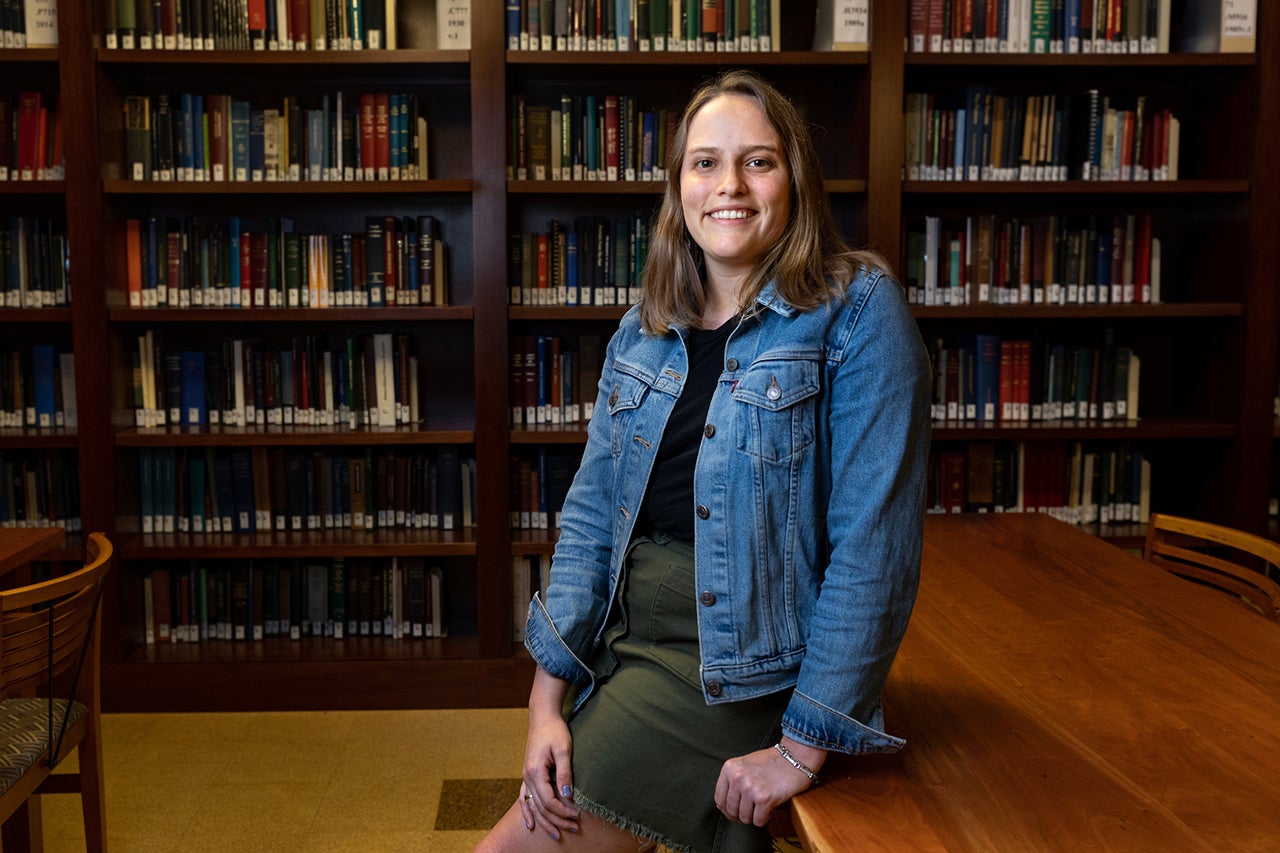Ever since seventh grade, Cappy Yarbrough ’18 knew she wanted to come to the College of Charleston. Both of her parents, Dabney “Champ” Yarbrough ’86 and Kelley Yarbrough ’85, graduated from the College, and Yarbrough grew up having an affinity for the Holy City and her parents’ alma mater.
But her academic journey to get to CofC wasn’t easy. Growing up, Yarbrough had severe dyslexia. In fact, she didn’t learn to read until the fourth grade. Her first A came from a history class in sixth grade.
“It doesn’t feel like work to me,” she says of studying history.

Cappy Yarbrough is a graduate assistant for the Lowcountry Digital History Initiative. (Photo by Heather Moran)
The rest, as they say, is history. Yarbrough earned her bachelor’s degree in history from the College and is currently earning her Master of Arts in History at the College’s Graduate School of the University of Charleston, S.C.
The graduate student says she finds support through her professors in the history department, which has made all the difference.
“They have consistently taken a genuine interest in helping me carve a path and find success,” says Yarbrough, who is a recipient of the Principal’s Fellowship, a scholarship for CofC graduate students. “Whether it be editing cover letters or the many office-hours meetings to bounce ideas around, I have been extremely lucky to have their support.”
While she’s studying for her graduate degree, Yarbrough also works as a graduate assistant for the Lowcountry Digital History Initiative (LDHI), an online project that creates exhibits about underrepresented and marginalized history in the Lowcountry.
“I have a broad range of tasks, however I primarily conduct image research,” she says. “This means after reading the text of an upcoming exhibit I work with the project director and my fellow graduate student to come up with images that will enhance the exhibit. We use online and archival resources to find the images. It’s very challenging, but always rewarding when we find that perfect historic image that matches the text perfectly.”
Yarbrough says that her work with the LDHI has provided her with many real-world skills that she can take out into the workforce, like social media management, professional collaboration and expansion of branded communications.
“At this point, I am very open to possibilities about my next career move, whether it be to continue down the academic path or to look for another opportunity in the digital humanities or perhaps something outside of the specific field of history all together,” she says. “LDHI was critical in opening my eyes to a range of public history jobs, for example digital archives or the digital side of museum exhibits. However, it has also been great in that it has given me experience in an office and professional environment. I now feel prepared for whatever direction I choose next.”




